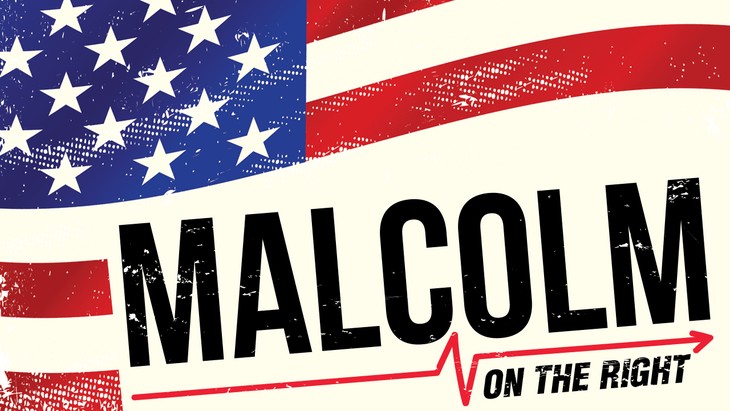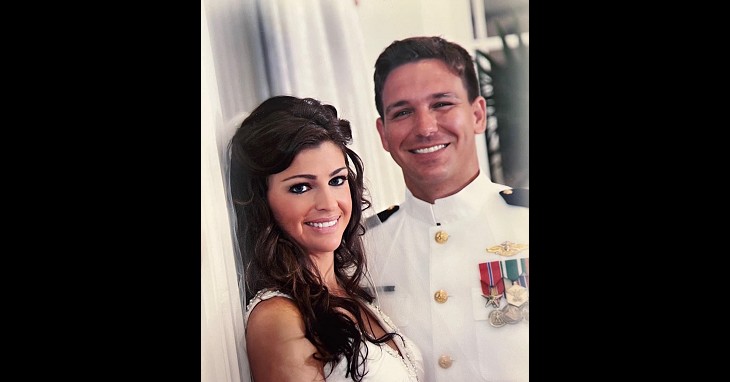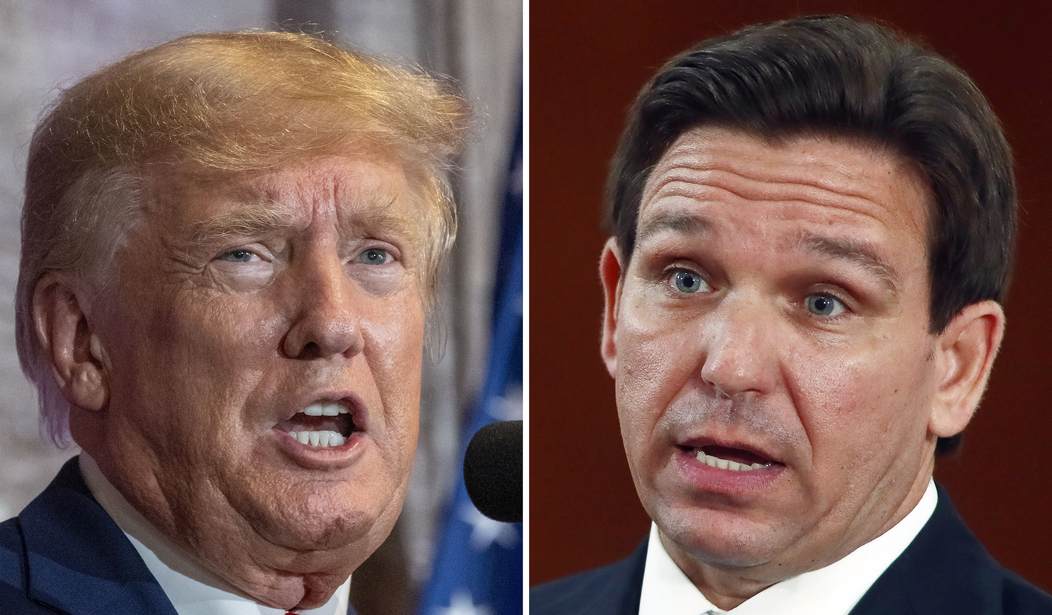The opening summer holiday aside, Americans these days are in a state of emotional disarray and flux.
They’re still plagued by man-caused inflation and mounting interest rates, as a potential recession looms. The national political situation is roiled by ambition and turmoil an unusually long time before a presidential election.
Polls show depression, financial fears, crime, and retirement worries are at record heights. Joe Biden abruptly dropped debt limit negotiations for another vacation this weekend, then announced a tentative agreement in principle.
For its own reasons, media has sounded daily alarms about a national default next week without a new agreement in this predictably divisive, cyclical, and, frankly, boring fiscal confrontation.
Americans’ confidence in major national institutions like the presidency, Congress, the Supreme Court, and media wallow at worrisome low levels.
And yet, amid all these troubles, one institution stands out in solid approval: Governors.
They remain a bright spot in the popular mind. Even the nine rookie governors newly installed in state capitals.
With few exceptions, regardless of party, the 50 men and women running the country at the state level are seen to be going about the business of governing with steady hands and determination.
After long being lopsided in Republicans’ favor, the political balance of governors has almost evened out to 26 GOP and 24 Democrats. However, the GOP controls both legislative chambers and the governor’s office in 22 states, including Florida, vs. Democrats’ 17.
Part of this widespread satisfaction with government at the local levels may be the serious decline in news coverage in state capitals as news organizations, especially newspapers, cut back expenses and staff. News consumers simply know less about what’s going on there.
Led by the self-important national media, the nation’s political attention is primarily focused these days on the premature presidential race in general and the Republican primary specifically.
And given the usually slow news days of summer, we’re all likely to be treated to endless incremental coverage about each inch of alleged change in this marathon horse race.
More than two-thirds of the declared and likely Republican candidates have been or are now governors – Nikki Haley, Asa Hutchinson, Ron DeSantis, Chris Christie, Chris Sununu, Doug Burgum, Mike Pence. Possibly Glenn Youngkin.
Republicans have an historical fondness for candidates who’ve been chief executives of large organizations like states, companies, the CIA, or armies: Ronald Reagan, Dwight Eisenhower, both Bushes, Donald Trump.
Democrats, on the other hand, lean toward legislators as candidates, men who haven’t run anything but their own Senate offices: Barack Obama, Joe Biden, Al Gore, John Kerry, Walter Mondale, Hubert Humphrey, George McGovern.
For almost one century, every Democrat vice presidential candidate, like Biden, has come out of Congress, not the best place to detect Americans’ thoughts, fears, hopes. Remember: of 17 Republican primary candidates in 2015-16, only the New York billionaire, a political rookie, detected and exploited Heartland anger and frustration with the DC Swamp.
Of the 80 Americans in U.S. history who’ve been vice president, president, or both, more than one-third (27) were previously governors, starting with Potus No. 3, Thomas Jefferson.
Fifty-five of the presidential nominees in the nation’s 59 national elections so far have been governors.

At the moment, the Democrat Party appears stuck with six-term former senator Biden. He’s unusual in numerous unfortunate ways, but one of his historical anomalies is being an ex-vice president who won the presidency.
Democrat Andrew Johnson was an unusual figure too. A former Tennessee state representative, state senator, governor, and U.S. senator, he was selected by Republican Abraham Lincoln as his vice-presidential running mate in 1864.
That is the only successful bipartisan presidential ticket in U.S. history. Upon Lincoln’s 1865 assassination, Johnson became president until 1869.
You might wonder why that dramatic unity gesture, a Union Republican picking a Southern Democrat near the end of the Civil War, hasn’t been tried again, given some starkly divisive times since.
It would be a tricky selection for sure, probably best accomplished by an incumbent. It does seem impossible to contemplate in such a partisan time as this. Out of the question until suddenly, it isn’t. But could this time be much worse than coming out of a live-fire Civil War?
DeSantis is widely touted for now as the most likely Republican to give Trump a competitive run. Trump helped elect him in the close 2018 cycle. DeSantis went on to build an impressive conservative record in the country’s third most populous state and helped install a well-run GOP super-majority in that legislature.
Together, they’ve passed numerous conservative measures including abortion restrictions, gun regulations, and anti-Woke laws and orders.
Supporters of Trump, who’ll turn 77 in about two weeks, are eager to have us write off DeSantis, who turns 45 in September. But the energy they and Trump himself are investing in DeSantis attacks indicates a serious — and appropriate – fear for their long run.
Which these 414 days are until the Republican National Convention in Milwaukee.
Trump’s personality, behavior, and strategy are predictable and well-known – attack, attack, and attack.
With the undeclared DeSantis absent from the campaign trail while focused on governing these past several months, Trump’s strategy has pushed DeSantis’ numbers down among Republicans.
Tell you what though, I’d much rather be a scrappy come-from-behind candidate than an angry, guarded front-runner playing prevent defense for more than a year.
And the former president’s campaign is trying to play the ridiculous endorsement game. Seriously now, does anyone outside a campaign genuinely care that nine state legislators you’ve never heard of from a place you’ve never been have endorsed this candidate or that one?
I confess to participating in such silly antics in a previous life, helping to recruit local endorsements for a national campaign and adding to a running tally like a Jerry Lewis telethon tote-board.
Technical Twitter glitches in DeSantis’ campaign launch did not help his cause.
I wrote here last week that a party primary campaign for national office is a series of ups and downs that play out on local newscasts beyond our ken and in national media.
Unfortunately, these do-or-die opening primary states are confined for inexplicable reasons to a handful of early-voting states that are not at all representative of America.
In the 2020 Iowa Democrat caucuses, Joe Biden came in fourth place with 13.7 percent of 176,352 votes cast.
In the 2016 Iowa GOP caucus, the last contested one for Republicans, Trump came in second to Ted Cruz with 24.3 percent of 181,740 votes cast.
That’s a total of 353,092 caucus participants. Which equals just 11 percent of the state’s 3.2 million population.
New Hampshire is representative of New Hampshire, nowhere else. Yes, it is the most self-important primary state; just ask any one of its 1.4 million residents.
In 2016, Trump “won” New Hampshire’s GOP primary, where non-Republicans could participate, with 35.23 percent of the 261,412 total votes. The other five Republicans took a combined 56 percent. So, the “winner” received barely a one-third plurality.
Among Democrats in 2020, Joe Biden finished fifth with but 8.4 percent of the record 298,377 ballots cast. The other four major candidates received 79 percent.
Yet, Trump with barely one-third of the ballots and the fifth-place Biden were hailed as the big winners en route to their party’s nomination.
That’s how nationally “representative” the handful of early voting states really are in our deeply-flawed primary system.

Because Biden didn’t like his poor earlier showings in 2020, he’s arranged for the kickoff primary to be in South Carolina, where he still took only 48.6 percent of that year’s vote.
The next early GOP primary state is Florida, where both Trump and DeSantis reside. DeSantis easily won reelection last fall with a 19.4-point margin of victory.
DeSantis has pushed Florida out of the swing-state category into a solid red one with broad support across the board. A challenge for him now is becoming better known outside his home state.
Trump has a fervently loyal, though slightly diminished, national base of between 30 and 40 percent of GOP voters.
DeSantis and his Never Give Up PAC will need to construct a brand-new national political base of his own basically from scratch with both new followers and luring over supporters from others.
The good news for them is a quiet, latent coalition waiting to assemble: centrist conservatives, establishment Republicans, and fatigued Trump supporters, united by one common thread: They’re tired of losing.
A pragmatic, calm, proven commodity like DeSantis is quite appealing.
That will take time and consistently impressive appearances, ignoring Trump and media reports that his effort is doomed.
In a seemingly endless series of media interviews after the Twitter glitch, DeSantis impressed. In appearance after appearance, some of them more than an hour long, he eschewed name-calling and attacking fellow Republicans.
Joe Biden was the target, which after all, is the real 2024 goal. DeSantis talked confidently and seriously in considerable detail about policy after policy, all about the future, not 2020.
He detailed, for instance, how he would restart construction of the border wall begun by Trump and halted by Biden. How he and the legislature had just limited China’s ownership of Florida farmland and property near military bases. How they had reformed school curriculum to combat Woke ideology, tightened restrictions on abortion and the gender-change movement on children.
That kind of laser focus on content, absent name-calling and histrionics, will take considerable time to sink in and build upon among potential supporters.
A question is:
Does DeSantis have sufficient time and resources to get that message and impression out to enough potential new supporters, despite a hostile media and incoming party attacks, to make the Republican primary a genuine contest and not just a Trump re-coronation?
And contrasting his age, energy, and fresh ideas with the debate-free, carefully choreographed cakewalk that an addled 80-year-old Joe Biden needs from his desperately frightened party.













